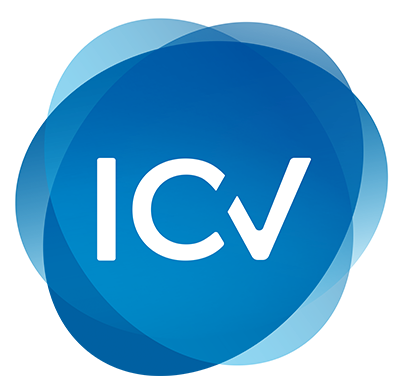"Exploiting Unexpected Potentials in Controlling" - with Artificial Intelligence (AI)
1. How do people cope with the Artificial Intelligence entering their working life? Do you see a development?
Vierkorn: The topic of Artificial Intelligence (AI) is still meeting with much suspicion and skepticism. However, the degree of concern is quite dependent on factors such as sector, work environment and individual level of knowledge. Start-ups and progressive businesses cope with the change easier than traditional companies. Uncertainties can be traced back to ignorance, which is often fueled by sci-fi myths and media scare tactics.
However, if we succeed in making AI tangible and accessible through use cases and best practices for a customer, interest and openness grow. Customers realize that AI is not a "devil's stuff". They see that there are math, algorithms, and finally the techniques of machine learning behind it and realize that AI does not rationalize people but helps them to make their work more efficient and exciting. And they start to get creative and develop fields of application.
Of course there is a lot of hesitation and procrastination along the way and one or the other battle for cherished structures and procedures. However, the knowledge is growing that AI as well as the computer itself continue their triumphal procession and soon become indispensable, but their use will simply be completely normal.
The answer to the question above is very clear: Yes, I can see a positive development and a lot of potential. Always assuming that you have done your homework in data management and translated AI into workable solutions.
2. What are the main reasons for reservations or even rejection?
Vierkorn: At first it is mainly about existential fears: What happens to me when AI makes me unnecessary and easy to replace? This is all the worse, as there is little concrete information about opportunities thet can arise through innovations, especially for the individual. For example, risks and black-and-white scenarios are much praised over the media, because bad news is always selling itself better. The crazy thing, though, is that the same people who are worried about their jobs in the face of technological innovation have been using AI-based services like Google Maps for a long time.
So I see it as our task to provide education, training and further education to make AI experienceable and tangible and to show that AI - used correctly and consciously – is an enrichment and ease of work, and ideally even completely opens up new business fields and opportunities.
Essential at the AI as well as at BI, Big Data and advanced analytics, however, are always clean data management and setting up data governance. Moreover, the use of AI should not simply be actionist, but just as the use and use of Business Intelligence or Big Data should be combined with the strategy and anchored throughout the entire enterprise.
3. What do you advise controllers in particular?
Vierkorn: I advise them: Take the topic of AI pro-actively. Admit it agile, but also objectively founded and take the people in the company with you. Inform yourself and others, identify potential together and make AI a reality.
Every innovation has measurable added value for each individual and it is important to show it. Get an expert to the side, who shows you practical experience and professional information on technologies and opportunities. Work not only theoretically, but also practically hands-on and in professionally led workshops develop the questions:
- What are some use cases where AI could be used?
- What processes and requirements could AI help improve?
- What roles and tasks, perhaps completely new, could result for employees from using AI?
The joint development of use cases, how hypothetical they may be, and then the prototypical technical implementation take all the people concerned in the future, strengthen the self-confidence of each individual, provide understanding and reduce existing inhibitions. In the end, you take away the fear of the new and create the necessary identification.
Also for the controlling itself: AI can uncover unexpected potential in many places. Get involved with it and with the underlying technologies and dare to work on your own use cases. Think about creating revenue forecasts for reporting and planning, or for anomaly detection in bookings. Potential uses are often closer than you think.
About Steffen Vierkorn

Steffen Vierkorn
- for many years worked as Head of Business Intelligence & Data Warehouse at the Business Application Research Center (BARC) in Würzburg. BARC is an independent enterprise software research and consulting company focused on Business Intelligence and Big Data software.
- Today, SteffenVierkorn focuses on the architectural conception of Business Intelligence, Advanced Analytics and Big Data systems for large, medium and small companies.
- Another area of his activity is the development of Business Intelligence, Advanced Analytics and Big Data strategies and the development of adequate organizations.
- In addition to his work at QUNIS, Steffen Vierkorn teaches at the TU Munich.
- He also works as a Business Intelligence, Advanced Analytics and Big Data trainer at the Controller Akademie.
About Qunis
Founded in 2013, QUNIS GmbH from Neubeuern, as an owner-managed consultancy, combines under one roof the expertise and experience of a highly-profiled expert team specializing in Business Intelligence (BI), Big Data, Advanced Analytics and Artificial Intelligence (AI). Both medium-sized companies as well as specialist departments and digitization initiatives in groups are supported in the development and implementation of sustainable BI and AI strategies,.
QUNIS accompanies you in BI and innovation projects up to the delivery of sustainable solutions. This is based on in-depth expertise in the various disciplines of BI and AI, data warehousing, data-lake architectures and data governance. Added to this are QUNIS frameworks, a market overview of technologies, providers and tools, coupled with the high personal commitment of the consultant team, including comprehensive expertise in agile project management.
The cooperation partners include Microsoft and GAPTEQ as well as the Controller Akademie with their Certified Information Manager CA training program.
